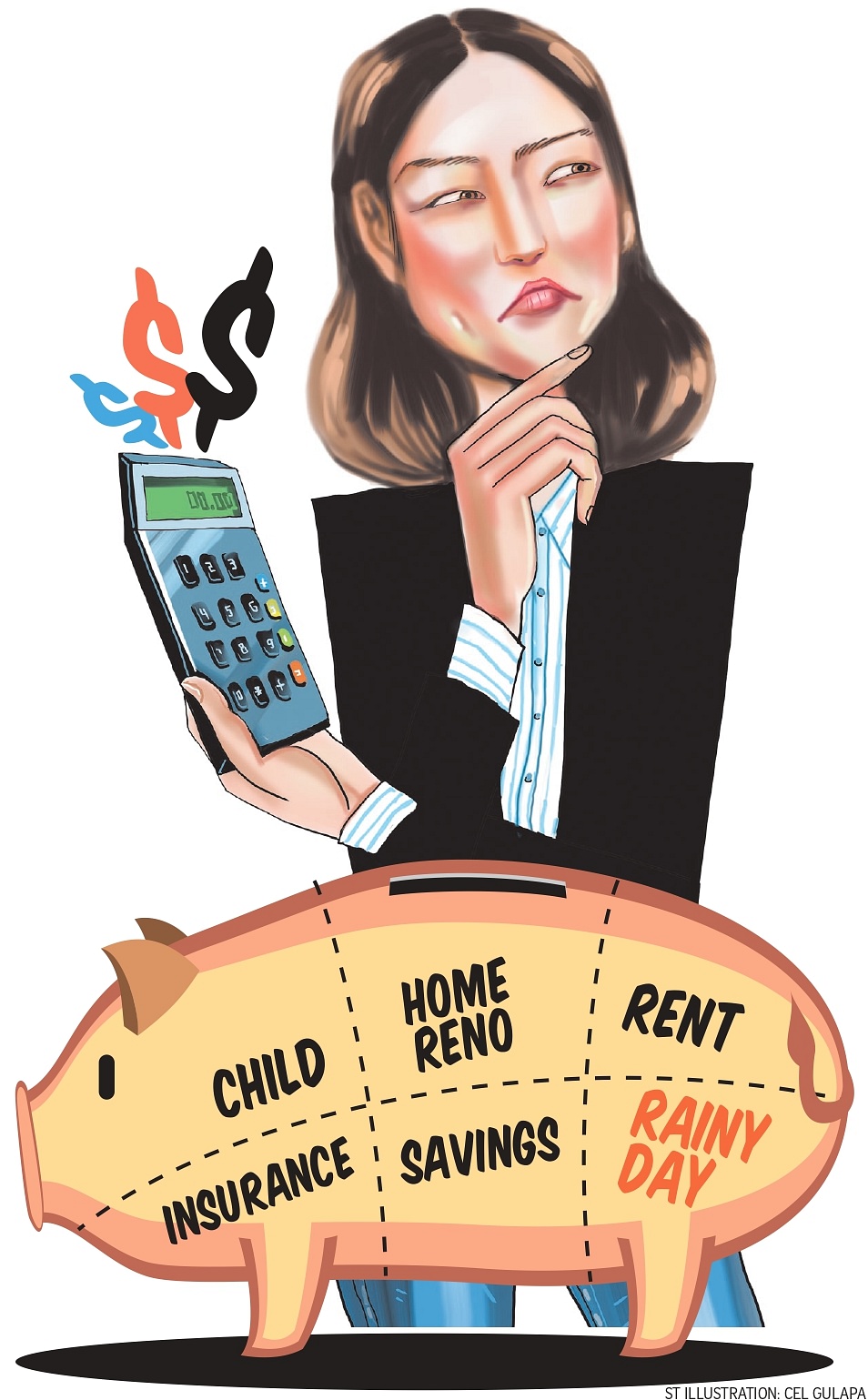SINGAPORE – The biggest lifestyle and financial adjustment I’ve had to make in the past two years was when my husband and I welcomed our first child into the world.
We soon added her childcare fees and insurance plans to our expenses, and we had to make some practical adjustments to our lifestyle, which isn’t out of the norm for new parents: less dining out, and fewer shopping and paid entertainment options.
This year, we added two more big-ticket items to the list – renting an apartment while waiting for our home to be renovated, and starting those renovations.
Although we are very fortunate that our parents are offering to help with some of the renovation costs so that we do not have to take out a bank loan, we are still paying for the bulk of them.
Even though our renovations were something we had been saving for over a few years, the inflation now and substantial 30 per cent to 40 per cent rise in manpower and labour costs compared with pre-pandemic levels have somewhat diminished the interest earned on our bank deposits.
The increased goods and services tax, now at 8 per cent, is another burden when it comes to buying home necessities and appliances.
Money can and will be earned again, of course, and I will be able to resume saving bigger sums once the renovation is done.
My concern now is how to grow those funds I have left and any future savings to beat the core inflation rate, which is estimated to go up to 4.5 per cent in 2023.
Only then will I feel more secure saving up for my child’s future university education, and perhaps reconsider buying a car.
Since my aim is to beat inflation, experts I spoke to generally advised me to get started on investing and that the time is now.
Associate Professor Pearpilai Jutasompakorn from the Business, Communication and Design Cluster at the Singapore Institute of Technology says it is “crucial to start investing as soon as possible to maximise the long runway of investment before retirement” and take advantage of compounded returns.
She suggests holding a long-term diversified investment portfolio consisting of assets such as stocks, bonds, real estate, commodities and inflation-protected securities, as well as a mix of local and international investments.
Prof Pear adds: “Determine your risk tolerance level and invest in different asset classes accordingly, diversifying your portfolio to minimise risks…
“To diversify further within each asset class, consider investing across different sectors, industries and geographic regions.”

Ms Jessica Tan, a senior wealth planning manager at DBS Bank, says you cannot “underestimate the power of compounding effect on every dollar” saved and advises people to learn to invest now.
She recommends the bank’s Invest-Saver, which lets you set up a unit trust or exchange-traded fund (ETF) regular savings plan.
“This is ideal for new investors who want a head start, or those who do not have the resources or know-how to monitor and time the market,” adds Ms Tan.
Since investing a sizeable sum of money into a fund is not an option until after I pay off my home renovation, one option I can consider at the very least is to earn whatever interest I can from my savings, in addition to my current savings plan.
One way is with the POSB Save As You Earn account, which has additional higher preferential interest for fixed monthly savings made over a two-year period.
You can start by saving at least $50 a month.
Prof Pear reminds me that my financial needs and goals will change according to the different stages of my life.
So I will need to monitor, re-evaluate and rebalance my budget, savings and investments on a regular basis.
She also offers this advice: “Don’t forget to invest in yourself by upgrading your skills and knowledge, which can improve your earning potential and overall financial well-being.”
While she reckons I have taken “some significant steps” towards securing my future, as I have my savings plans and insurance policies in place, I can take things “to the next level” by adopting a more disciplined approach to spending and budgeting.
“Track your expenses, identify areas where you can cut back and allocate more towards savings and investments,” she says.
Ms Tan adds: “A good question to ask yourself is: Do I really need it and how badly? How is this going to impact me, and how long will it last?
“Is it going to put me in debt and is the value you will get out of it over its lifetime worth the cost?”
There’s no running away from good old discipline when it comes to managing money and controlling the urge to impulse buy, something which I’m guilty of in times of stress.
My impulse buys (mainly clothes and books) may not put me in debt, but I recognise that I can do without the new buys most of the time, and that money, however little, would be much better off in a savings account or an ETF to generate some returns.